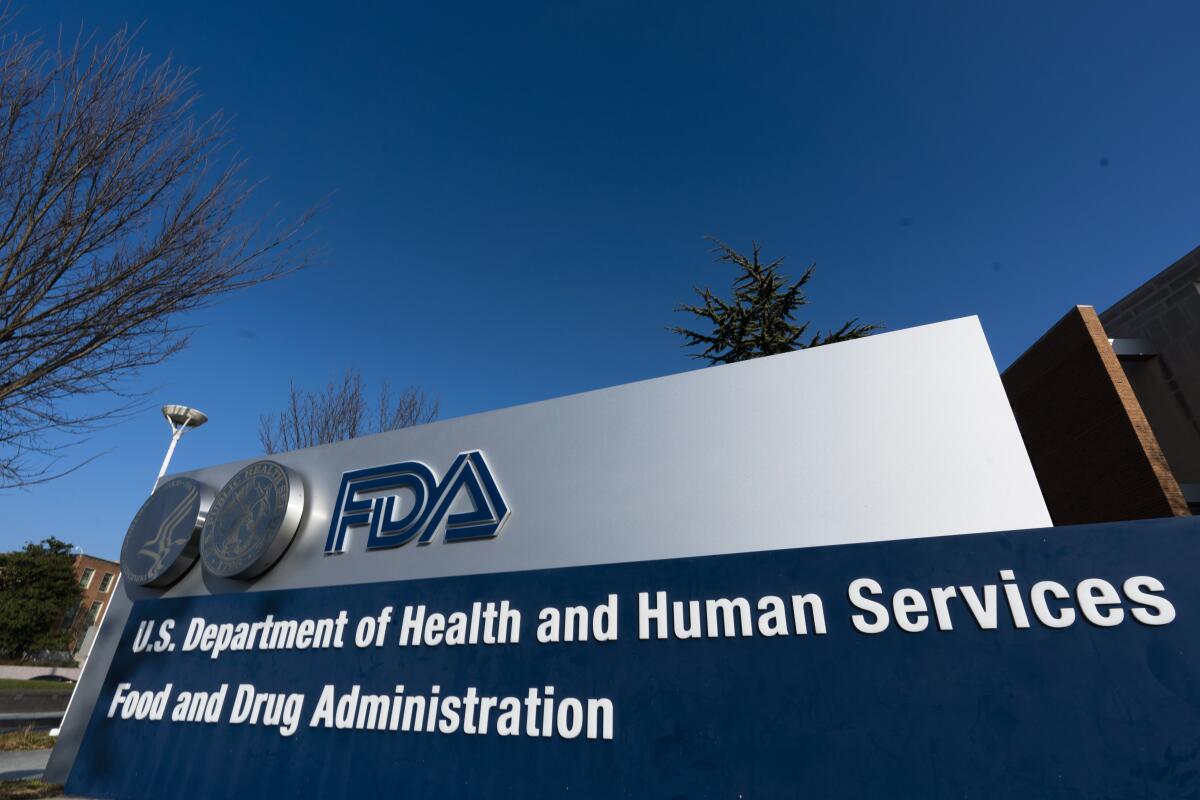Opinion: A route to safer chemotherapy

- Share via
I have been a cancer doctor for 40 years and have seen our treatments evolve to embrace precision medicine and immunotherapy, which can be less harmful to patients than conventional forms of chemotherapy. And yet conventional cytotoxic chemotherapy — designed to attack and kill rapidly dividing cells — is still a mainstay of cancer treatment for millions of patients globally.
Cytotoxic drugs kill cancer cells, but they also kill normal cells, leading to a host of serious and even life-threatening side effects. Bone marrow suppression, a common side effect of chemotherapy, reduces the number of white cells needed to fight bacterial infections. Chemotherapy can destroy cells lining the bowel and around the mouth, making eating and even drinking nearly impossible.
Generally, these side effects are reversible as the normal white blood cells are replenished, but in the most severe cases, they can be fatal if, for example, bacteria from the gut escape into the bloodstream through a weakened bowel wall and white cell counts are too low to fight the infection. Sepsis in such a case could be catastrophic.
In ERs now, you’ll get a tech-driven evaluation. But trading doctors’ humanity and deductive powers for AI and apps has a high cost — dumbed-down medicine.
The toxic death rate, where chemotherapy is directly responsible for a patient’s death, can range from 0.5% to 3.1% but has been reported as high as 13%, depending on the intensity of the chemotherapy regimen, age and fitness of the patient and their genetic makeup.
We can reduce this terrible result with greater use of pharmacogenetics, which studies how our genes affect the way we respond to medications in terms of toxicity and effectiveness. It is becoming more possible to devise genetic tests that can indicate whether an individual would be likely to suffer very serious side effects. This would permit healthcare providers to tailor dosages to avoid the worst hazards of chemotherapy drugs and lessen the number of patients dealing with potentially deadly side effects.
One prominent example involves two related and widely used anticancer drugs, 5-fluorouracil, or 5-FU, and capecitabine (which functions like 5-FU), often used to treat colorectal, breast, stomach and pancreatic cancer.
Most diagnoses cite a physical cause for chronic pain, but there’s robust evidence that it comes from the mind instead.
In the United States, about 275,000 patients with cancer receive 5-FU each year. As many as 25% of those patients require hospitalization with severe side effects, and more than 1,300 patients are estimated to die each year from the drug’s toxicity.
The side effects are most severe for patients who have low levels of dihydropyrimidine dehydrogenase, an enzyme that is produced by the liver and that breaks down 5-FU in the body. This enzyme, also known as DPD, is usually caused by inherited changes in a particular gene. Currently, there are internationally accepted dosing guidelines for 5-FU, adjusted according to DPD genetic test results, ranging from avoiding the drug completely (risk of death is high) to conventional dosing.
While the genetic DPD tests are not perfect — they may miss some patients — nevertheless they have been shown to save lives, reduce the number of patients admitted to hospitals and reduce healthcare costs.
California’s strongest summer COVID wave in two years is still surging, fueled in part by the rise of a particularly hyperinfectious FLiRT subvariant known as KP.3.1.1.
In the United Kingdom, the National Health Service now requires that all new patients receiving 5-FU or capecitabine take some form of a pharmacogenetic test, a policy change that was driven by pressure from families who lost a loved one and advocacy from professional medical societies.
In March, the U.S. Food and Drug Administration approved safety labeling changes regarding DPD deficiency for 5-FU, but that alone isn’t sufficient. It did not issue a national policy to require pharmacogenetic or related tests to detect the problem.
The National Health Service sets a sound example that the FDA could follow. Mandating a simple genetic blood test could help cancer patients get the care they need and better protect them from medical tragedies brought on by the treatment itself.
David Kerr is a professor of cancer medicine at the University of Oxford in Great Britain.
More to Read
A cure for the common opinion
Get thought-provoking perspectives with our weekly newsletter.
You may occasionally receive promotional content from the Los Angeles Times.











